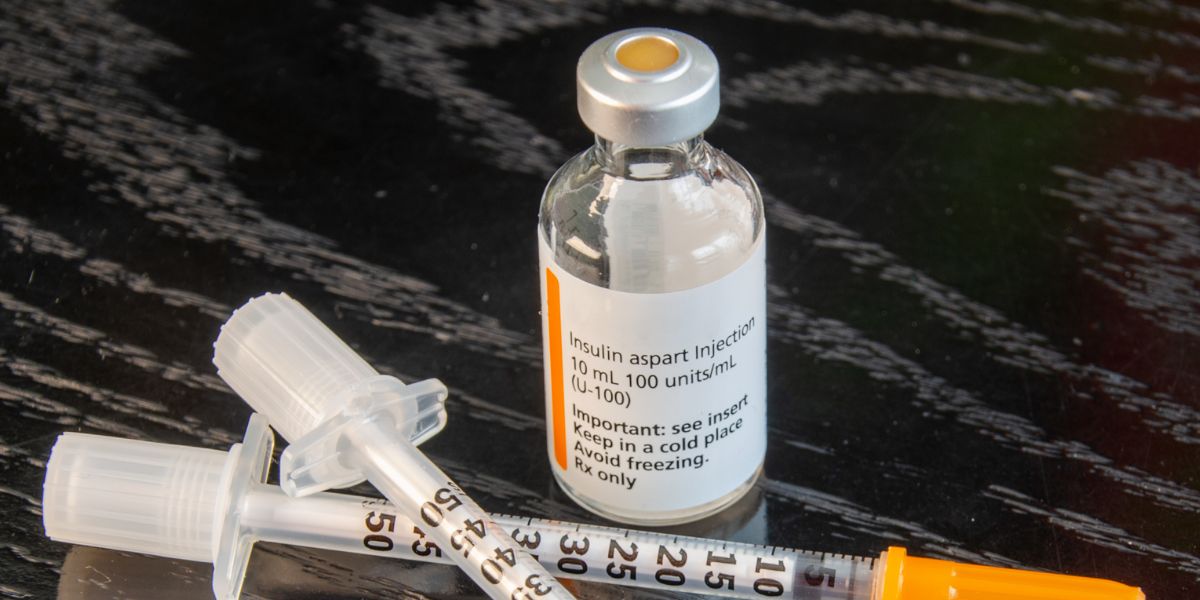- £2.7 million awarded to 6 groundbreaking research projects
- 4 of the 6 projects working on glucose-responsive insulin (GRIs)
- GRIs are ‘smart’ and adapt to blood glucose levels
A major breakthrough in diabetes research could dramatically change the way people with type 1 diabetes manage their condition.
Scientists are working on developing a new generation of ‘smart’ insulins that automatically adapt to changing blood sugar levels, potentially reducing the need for frequent injections to just once a week.
This exciting development is part of the Type 1 Diabetes Grand Challenge, a collaborative initiative between JDRF, Diabetes UK, and the Steve Morgan Foundation.
Six projects awarded almost £2.7 million
The partnership has recently allocated £2.7 million ($3.4m USD) to fund six innovative research projects across the United States, Australia, and China.
The goal: to create insulins that closely mimic the body’s natural response to glucose, providing a more efficient and less burdensome treatment for type 1 diabetes.
For the millions living with type 1 diabetes, managing blood glucose levels is a constant challenge. Current insulin therapies require multiple daily injections and careful monitoring, as blood sugar levels can be influenced by various factors, including diet, exercise, stress, and even the weather.
Despite advances in technology, many individuals struggle to maintain stable glucose levels, leading to both short- and long-term health complications.
- First large-scale study shows consuming proteins and fats can help manage insulin
- Oral insulin provides easy and convenient alternative to regular injections
- 1 in 4 people with insulin-dependent diabetes have eating disorder symptoms, research shows
Focus on glucose-responsive insulins
Among the six newly funded research projects, four are focused on developing glucose-responsive insulins (GRIs).
These ‘smart’ insulins are designed to activate when blood sugar levels rise, preventing hyperglycemia, and deactivate when levels drop, avoiding hypoglycemia.
This innovative approach could bring us closer to a form of insulin therapy that significantly reduces the daily demands on those living with type 1 diabetes.
One of the projects is working on an ultrafast, short-acting insulin that could further improve blood sugar management.
Even with the fastest insulins available today, there’s often a delay before the insulin begins to take effect. This new insulin could respond more quickly, helping to prevent dangerous spikes in blood glucose levels.
Another project aims to combine insulin with glucagon, a hormone that raises blood sugar levels when they fall too low.
This dual-action formulation could help maintain more stable glucose levels, reducing the risks associated with both high blood sugar and low blood sugar.
Dr. Tim Heise, Vice Chair of the Novel Insulins Scientific Advisory Panel for the Type 1 Diabetes Grand Challenge, expressed optimism about the potential impact of these projects: “The development of glucose-responsive insulins is a significant step toward a more natural and effective treatment for type 1 diabetes.
“If successful, these advancements could represent a new era in insulin therapy, reducing the frequency of injections and easing the burden on those living with the condition.”
Professor Simon Heller, Chair of the Scientific Advisory Panel, emphasised the collaborative nature of the research: “This funding allows scientists around the world to work together on innovative solutions.”
Rachel Connor, Director of Research Partnerships at JDRF UK, added: “While insulin has been saving lives for over a century, managing glucose levels remains a significant challenge. These new projects aim to lighten that burden by creating insulins that can respond to changing blood sugar levels in real-time.”
This wave of research holds the promise of transforming type 1 diabetes management, making it easier, more effective, and less invasive for millions of people worldwide.




